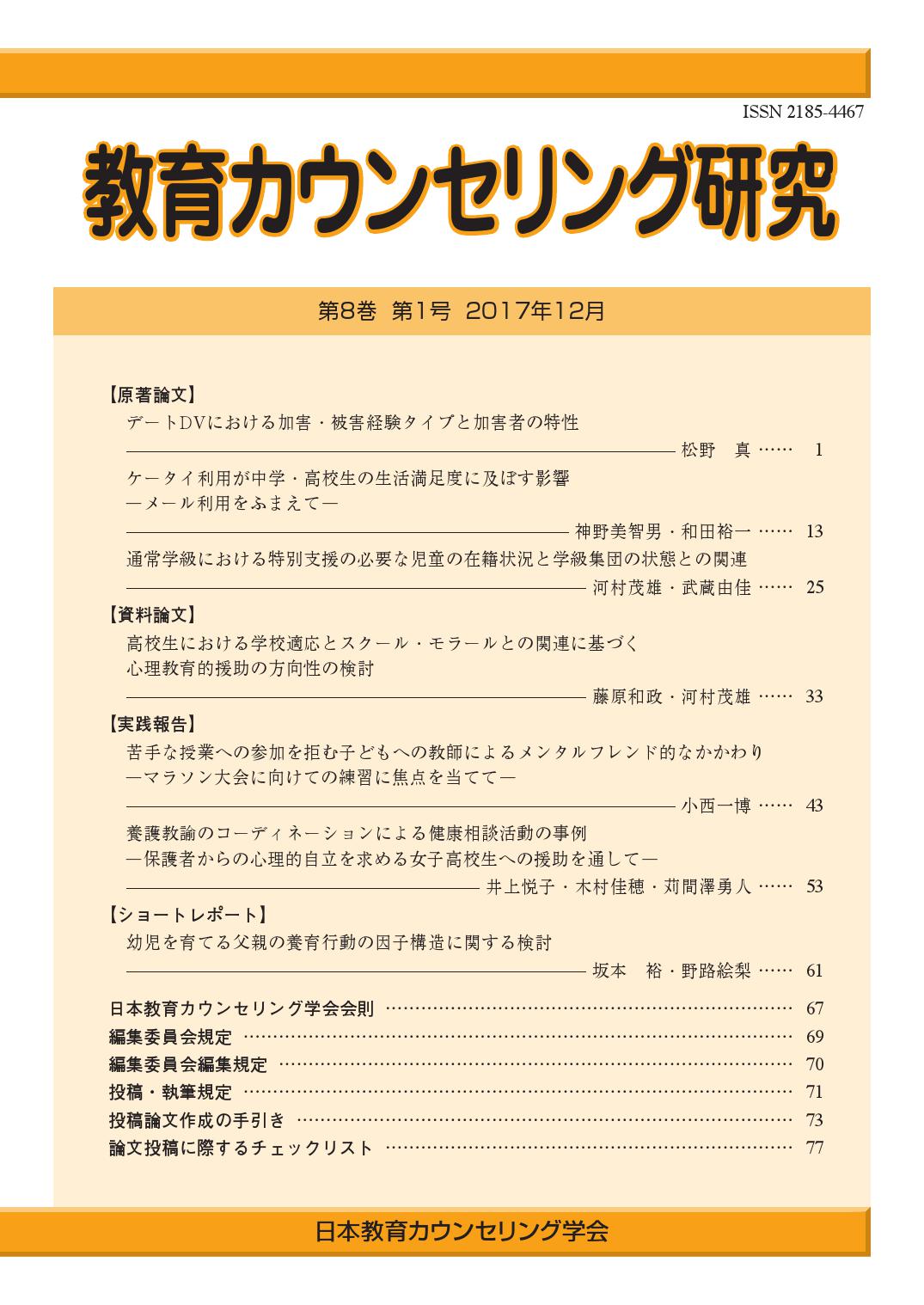Volume 9, Issue 1
Displaying 1-7 of 7 articles from this issue
- |<
- <
- 1
- >
- >|
-
2019Volume 9Issue 1 Pages 1-7
Published: 2019
Released on J-STAGE: April 08, 2025
Download PDF (869K) -
2019Volume 9Issue 1 Pages 9-14
Published: 2019
Released on J-STAGE: February 16, 2019
Download PDF (866K) -
Effects of Cognitive Emotion Regulation Strategies on Dispositional Forgiveness: University Students2019Volume 9Issue 1 Pages 15-23
Published: 2019
Released on J-STAGE: February 16, 2019
Download PDF (842K) -
2019Volume 9Issue 1 Pages 25-33
Published: 2019
Released on J-STAGE: February 16, 2019
Download PDF (975K) -
2019Volume 9Issue 1 Pages 35-43
Published: 2019
Released on J-STAGE: February 16, 2019
Download PDF (879K) -
2019Volume 9Issue 1 Pages 45-51
Published: 2019
Released on J-STAGE: February 16, 2019
Download PDF (766K) -
2019Volume 9Issue 1 Pages 53-56
Published: 2019
Released on J-STAGE: February 16, 2019
Download PDF (823K)
- |<
- <
- 1
- >
- >|
